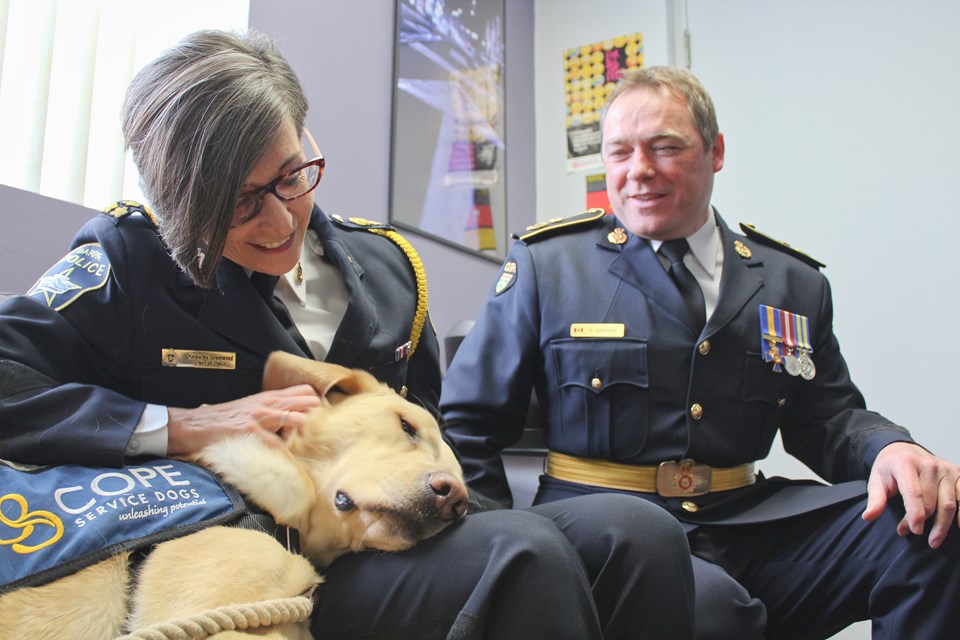WORKING
DOGS
WORKING DOGS

SERVICE / MOBILITY DOGS
HOW DO SERVICE DOGS BENEFIT PEOPLE WITH DISABILITIES?
COPE Service Dogs specializes in training dogs for people with mobility disabilities who live within a three-hour drive from the Barrie, Ontario office and reside in Canada.
We currently DO NOT provide the following types of assistance dogs:
- guide dogs for people who are blind or visually impaired
- hearing dogs for people who are deaf or hard of hearing
- seizure alert/response dogs for people with epilepsy
- diabetic alert dogs for people with diabetes
- autism assistance dogs
- psychiatric service dogs for people with PTSD, depression, anxiety or any other psychiatric disability
Service dogs help people overcome the limitations of their disabilities and the barriers in their environment.
Scientific research has begun to validate the role of service dogs for people with disabilities. In 1995, a 2-year study by Dr. Karen Allen, found that people with disabilities who were supported by service dogs scored higher for psychological well-being, self-esteem, community integration and the amount of control they could exert over their environment.
In addition, the number of personal assistant (human) hours required for care decreased by an average of 78%. Other studies support the findings of improved self-esteem, independence and social acceptance.

FACILITY DOGS
Facility Dogs go to work!
COPE dogs can be partnered with a teacher, counselor, health care worker, social worker or health professional for the purpose of providing social interaction, therapeutic intervention and canine assisted education for many different people. The dog accompanies his/her partner at work in order to augment their regular educational, social or therapeutic practices.
COPE’s approach to placing a Facility dog focuses on three major areas: the facility; the handler (the person(s) handling the dog at work) and primary caretaker (the person(s) who will be the dog’s caregiver/look after and be responsible for the dog at home); and the dog’s role in your facility.
Please note that COPE prioritizes placing Facility dogs in the Simcoe County area and locations where we operate. There are often significant wait lists for Service and Facility dogs and occasionally we close our waiting list due to high volumes.
